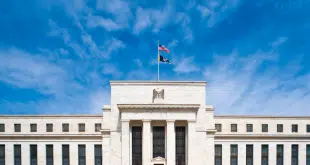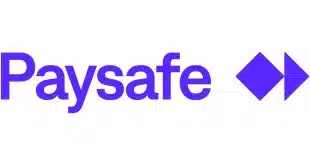Ending months of speculation, Visa Inc. on Monday announced it will buy its European counterpart, London-based Visa Europe Ltd., in a cash, stock, and earn-out deal valued at $23.4 billion.
“We’re delighted to be reuniting the Visa family,” said Visa Inc. chief executive Charles W. Scharf in discussing the acquisition during a conference call early Monday to review Visa Inc.’s latest quarterly results.
Observers contacted by Digital Transactions News generally applaud the deal but are split on the extent to which it is likely to meet some of the objectives Visa Inc. has set for it.
The agreement, which is subject to approval by regulators and which the parties expect to close by June 30 next year, will bring about $1.65 trillion in payments volume into Foster City, Calif.-based Visa Inc.’s fold, increasing the company’s volume by about one-third. It will also add about 3,000 issuers and more than 500 million card accounts, boosting card count by about 20%.
The deal will transform the 38-country Visa Europe from a traditional, bank-owned payments association into a publicly held, profit-seeking enterprise. The two parties hope to realize greater efficiencies from the combination, which will allow Visa Inc. to tap into Visa Europe’s digital-payments ventures and Europe to leverage tokenization and other digital technology adopted in recent months by Visa Inc.
Both parties are also eyeing growth potential in Europe stemming from some $3.3 trillion in transactions still consummated on cash and checks. That amounts to about 37% of consumer spending, the parties say.
The upfront portion of the purchase price includes about $12.7 billion in cash as well as preferred stock valued at another $5.5 billion. The stock is convertible into Visa Inc. class A common stock.
Up to another $5.2 billion is available to the Visa Europe banks if the European unit meets certain revenue targets over a four-year period following the deal’s close. The earnout includes $770 million in interest. The total will “provide upside to both parties” if the targets are met, said Scharf during the conference call.
To finance the deal, Visa Inc. plans between late November and January to issue between $15 billion and $16 billion in debt with maturities ranging from two to 30 years.
Technically, the deal will involve Visa Europe’s exercise of a put option that requires Visa Inc. to buy all of Visa Europe’s shares. The option, which dates to a 2007 reorganization that led to the creation of Visa Inc., has been amended to reflect the terms of the deal.
Expert observers point to the wide-ranging implications of the combination, which has been rumored for months in the payments industry. “Acquiring Visa Europe is the most strategically important acquisition Visa Inc. could do,” notes Eric Grover, principal at Intrepid Ventures, a Minden, Nev.-based payments consultancy, in an email message. “It will reestablish the world's largest retail payment network as a coherent global network, with unified management and aligned interests across all regions.”
But Grover questions whether Visa Inc. will succeed in bringing revenue yield in Europe into line with levels in the United States as the European operation sheds its membership-association structure.
“Today the more commercially minded Visa Inc. generates about 33 basis points of yield on payment volume whereas bank-owned Visa Europe only generates nine basis points,” he says. “Many investors therefore assume or hope Charlie Scharf will also be able to dramatically lift Visa Europe's revenue yield. That windfall, however, is not going to happen.” Visa will be restricted, he argues, by European Commission policies regarding network licensing and processing fees passed on to acquirers.
Others, however, are less pessimistic about the impact of regulation. “It’s true the European payments market has unique dynamics in terms of competition and regulation. However, I am sure none of this is news to Visa’s management and they must have a plan for how to deal with the regional challenges,” says Celent senior analyst Zilvinas Bareisis in an email message. “Furthermore, the potential synergies are real. A more consistent product set and fewer duplicated efforts should help Visa drive innovation and move to digital on a global basis. Given the longstanding rumors about the deal, it’s good to see things moving forward.”
For his part, Scharf demurred for competitive reasons from discussing pricing and yield matters beyond generalities. “We believe there is an opportunity to increase yields in Europe. However, we will remain competitive,” he told analysts on the conference call.
In related Visa news, Scharf disclosed in the earnings call that Visa’s digital wallet, Visa Checkout, now has more than 7 million users. Some 470 financial institutions are offering the product, and 250,000 merchants are live with it, including recent additions Kohl’s and Best Buy. Visa recently announced issuers can now tokenize Visa Checkout transactions.
Overall, Visa Inc. finished its fiscal fourth quarter ending Sept. 30 with $1.265 trillion in payments volume ($800 billion in credit volume and $456 billion in debit), up 4% from the year-ago quarter. Cards totaled 2.44 billion.







